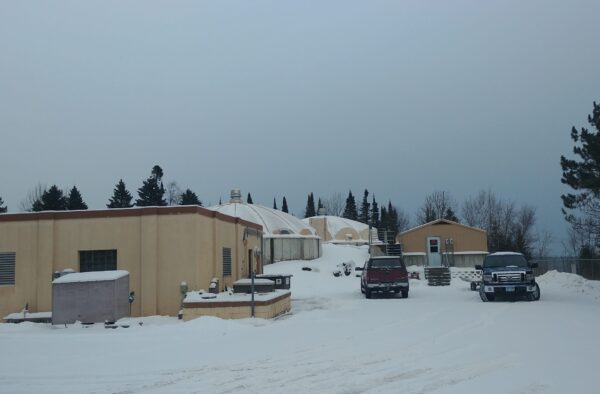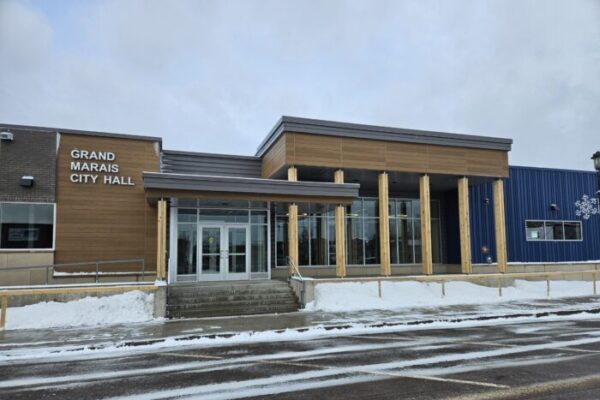New city hall and liquor store building will include a geothermal system
The city council resumed city hall and liquor store design discussions with LHB, the company hired to design and construct the new municipal building, during the Oct. 25 meeting. The city has been working with LHB for the past couple of months to fine-tune the layout and details of the new building.
During the presentation by LHB, the councilors reviewed exterior color and signage options and ultimately decided to incorporate a vertical geothermal heat pump into the building design.
“That was the last really big decision that we needed to make in getting this up and rolling,” Grand Marais Mayor Tracy Benson said.
Geothermal systems use the relatively constant temperature of the earth as the exchange medium instead of the outside air temperature. Below the frost line in Minnesota, the earth maintains an approximate temperature of 48 degrees to 52 degrees Fahrenheit. A geothermal system takes advantage of these more moderate temperatures by exchanging heat with the earth through a ground heat exchanger, according to the U.S. Department of Energy. A closed loop system, which the city of Grand Marais is exploring, can be water-based or refrigerant-based. If water-based, during the winter, the fluid collects heat from the earth and carries it through the system and into the building.
With the availability of Inflation Reduction Act tax incentives, numerous municipalities in Minnesota, such as Rochester and Duluth, have agreed to implement geothermal heat pump systems in city hall buildings. Large commercial buildings and schools nationwide have followed suit recently to cut long-term energy costs and reduce carbon emissions.
Benson said, “Geothermal is incredibly energy efficient.” However, she added, “It’s just expensive.”
The upfront cost of the geothermal system provided by LHB is nearly $700,000. Benson said, thankfully, with all the federal dollars under the Inflation Reduction Act program, there are a lot of incentives available.
During the meeting, Jacob Goldman, the Vice President of Energy Tax Savers, provided additional information about the tax credit process and fielded questions. LHB also presented a spreadsheet outlining the final net cost of the geothermal system after the alternative energy credits, which totaled $20,147.
The only caveat is that the city of Grand Marais has to pay the upfront cost and, after completion of the construction project, can pre-file for reimbursement of the ground source tax credits with the federal government.
“We’ll be just taking advantage of a real great opportunity at an affordable rate to take on some very energy efficient new system,” Benson said. “So I think that will be nice in the long run. It will really control costs.”
In addition to the long-term energy savings, the new geothermal system fits into Grand Marais’ Climate Action Plan adopted in 2019. The goal of the Climate Action Plan is to reduce the city’s emission levels and ultimately reach carbon neutrality in 2040. Electricity is currently the leading producer of carbon emissions in Grand Marais, followed by heating fuels.
WTIP’s Kalli Hawkins spoke with Grand Marais Mayor Tracy Benson following the Oct. 25 city council meeting about the ongoing design process for the new city hall/liquor store and more. Audio from the interview is below.














